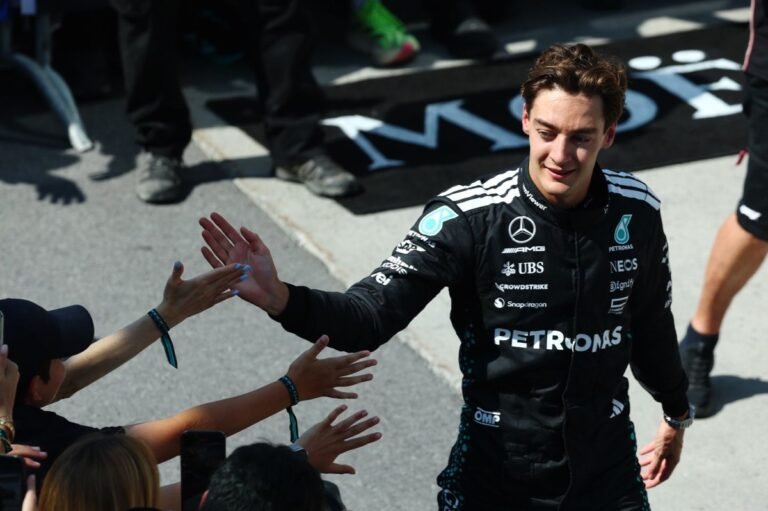Russell Advocates for Higher Fees for Appeals in F1
In the wake of a contentious appeal by Red Bull Racing regarding George Russell’s win at the Canadian Grand Prix, the Mercedes driver has called for Formula 1 teams to pay a “six-figure sum” to initiate protests against race stewards. This suggestion aims to deter frivolous appeals following a lengthy deliberation period that almost stripped Russell of his hard-earned victory.
The FIA rejected Red Bull’s appeal nearly six hours post-race, which initially focused on Russell’s behavior behind the safety car before evolving into accusations of “unsportsmanlike” conduct directed at reigning champion Max Verstappen. Russell, who ultimately retained his position as race winner, emphasized that current fees—set at €2,000—do not sufficiently deter teams from lodging appeals.
“When you look at the financial penalties for minor infractions, €2,000 is negligible to teams making nine-figure profits,” Russell noted. He proposed that a significantly higher deposit could encourage teams to weigh the implications of their protests more seriously.
Russell and Verstappen spent considerable time in a stewards’ meeting in Montreal where both parties presented their cases. Mercedes team principal Toto Wolff characterized Red Bull’s appeal as “petty and childish.” Reflecting on the incident, Russell speculated that the appeal stemmed from a defensive stance by Red Bull, rather than a genuine grievance from Verstappen himself.
The FIA faced criticism for its delayed process, prompting the governing body to release its guidelines on penalties and driving standards, a move welcomed by many drivers, including Russell. He has also advocated for utilizing full-time paid stewards instead of volunteers to ensure consistency in rulings.
“A professional panel would enhance decision-making,” Russell argued, suggesting that a stable group of stewards could provide clearer judgments based on context rather than strictly adhering to the letter of the law.
As discussions continue regarding the appeal process and stewarding, Russell’s insights highlight a critical juncture in how F1 governance may evolve to ensure fairer and more efficient race adjudications.



